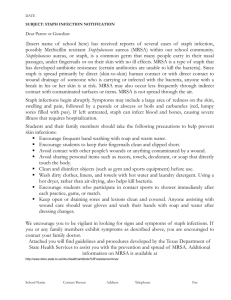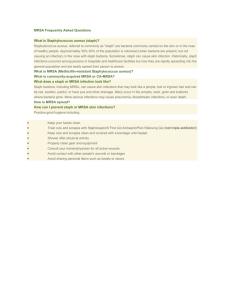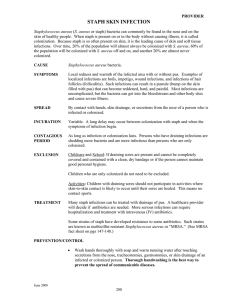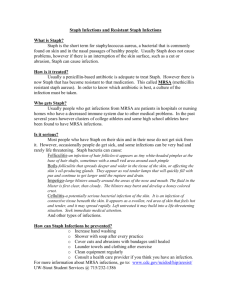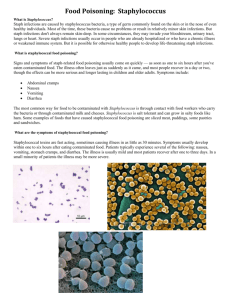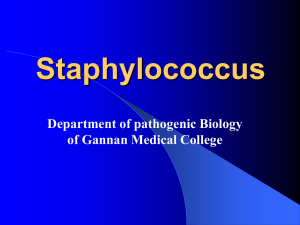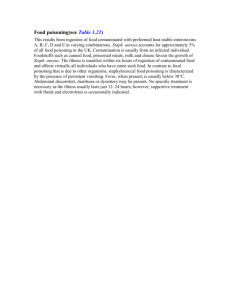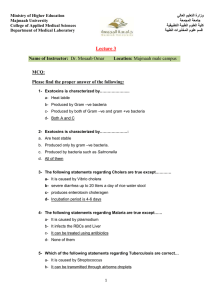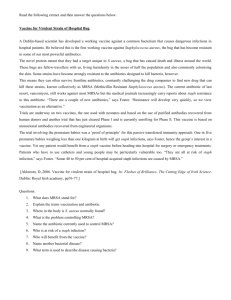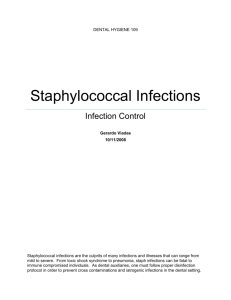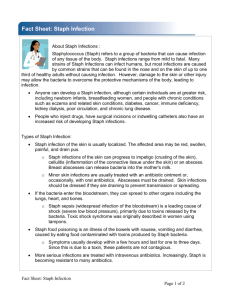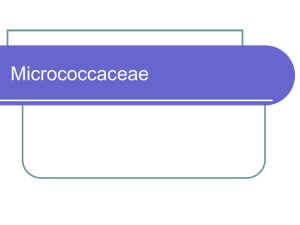Screening for Staphylococcus aureus before Your Surgery
advertisement
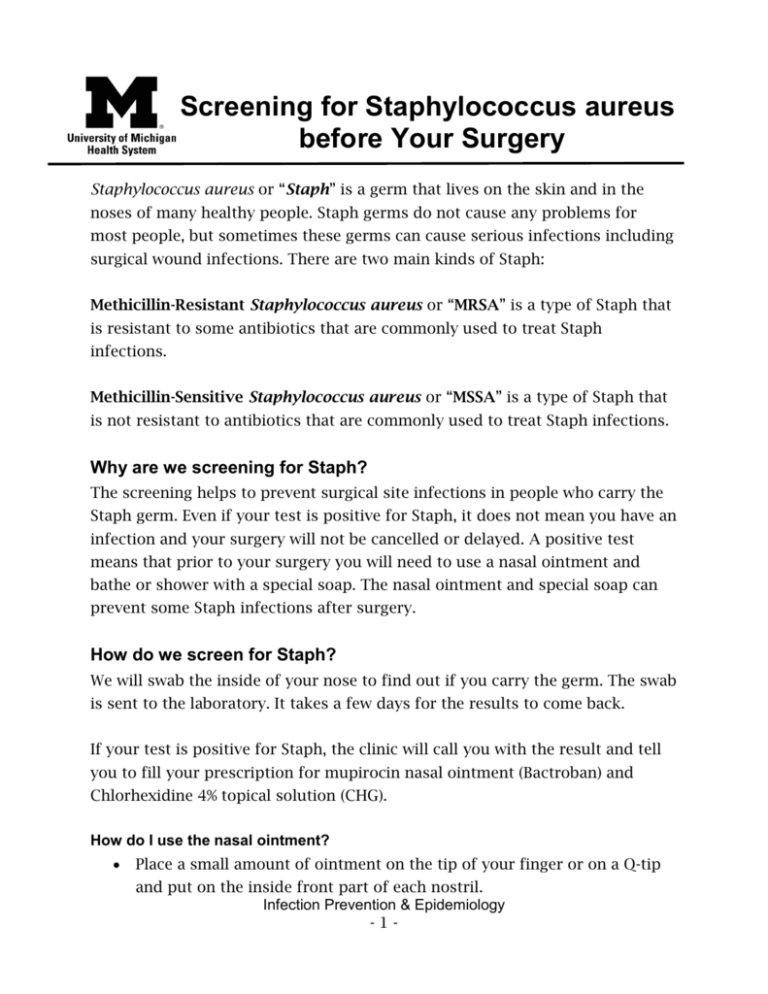
Screening for Staphylococcus aureus before Your Surgery Staphylococcus aureus or “Staph” is a germ that lives on the skin and in the noses of many healthy people. Staph germs do not cause any problems for most people, but sometimes these germs can cause serious infections including surgical wound infections. There are two main kinds of Staph: Methicillin-Resistant Staphylococcus aureus or “MRSA” is a type of Staph that is resistant to some antibiotics that are commonly used to treat Staph infections. Methicillin-Sensitive Staphylococcus aureus or “MSSA” is a type of Staph that is not resistant to antibiotics that are commonly used to treat Staph infections. Why are we screening for Staph? The screening helps to prevent surgical site infections in people who carry the Staph germ. Even if your test is positive for Staph, it does not mean you have an infection and your surgery will not be cancelled or delayed. A positive test means that prior to your surgery you will need to use a nasal ointment and bathe or shower with a special soap. The nasal ointment and special soap can prevent some Staph infections after surgery. How do we screen for Staph? We will swab the inside of your nose to find out if you carry the germ. The swab is sent to the laboratory. It takes a few days for the results to come back. If your test is positive for Staph, the clinic will call you with the result and tell you to fill your prescription for mupirocin nasal ointment (Bactroban) and Chlorhexidine 4% topical solution (CHG). How do I use the nasal ointment? Place a small amount of ointment on the tip of your finger or on a Q-tip and put on the inside front part of each nostril. Infection Prevention & Epidemiology -1- Gently press your nostrils together and release several times (for about a minute) to spread the ointment through your nostrils. Do this 2 times a day for the 5 days before your surgery. How do I use the Chlorhexidine 4% topical solution (CHG)? Wash with this soap for 5 days before your surgery. Use this soap only from the neck down. Do not use it on your face. Whether your test is positive or negative, remember to bathe or shower for 2 days with the Chlorhexidine (CHG) solution given to you in clinic. This solution will help remove germs from your skin. If I test positive, will I be treated differently while in the hospital? If you test positive for Staph that is resistant to some specific antibiotics (MRSA), you may be placed on “Contact Precautions.” This means that your healthcare team will put on gloves and a gown over their clothing when taking care of you. This is done to prevent your healthcare team from spreading MRSA to other patients that they care for. What can I do to prevent infections after surgery? Whether your test is positive or negative you need to take steps to prevent infection after surgery. The most important thing you can do is to wash your hands regularly. Wash your hands frequently with soap and water or use an alcohol-based hand sanitizer. Keep wounds clean and change your bandages the way your healthcare provider taught you. Clean your hands before and after changing your bandages. Disclaimer: This document contains information and/or instructional materials developed by the University of Michigan Health System (UMHS) for the typical patient with your condition. It may include links to online content that was not created by UMHS and for which UMHS does not assume responsibility. It does not replace medical advice from your health care provider because your experience may differ from that of the typical patient. Talk to your health care provider if you have any questions about this document, your condition or your treatment plan. Patient Education by University of Michigan Health System is licensed under a Creative Commons Attribution-NonCommercial-ShareAlike 3.0 Unported License. Last Revised 10/9/2014 Infection Control & Epidemiology Screening for Staphylococcus aureus before Your Surgery - 2 -
